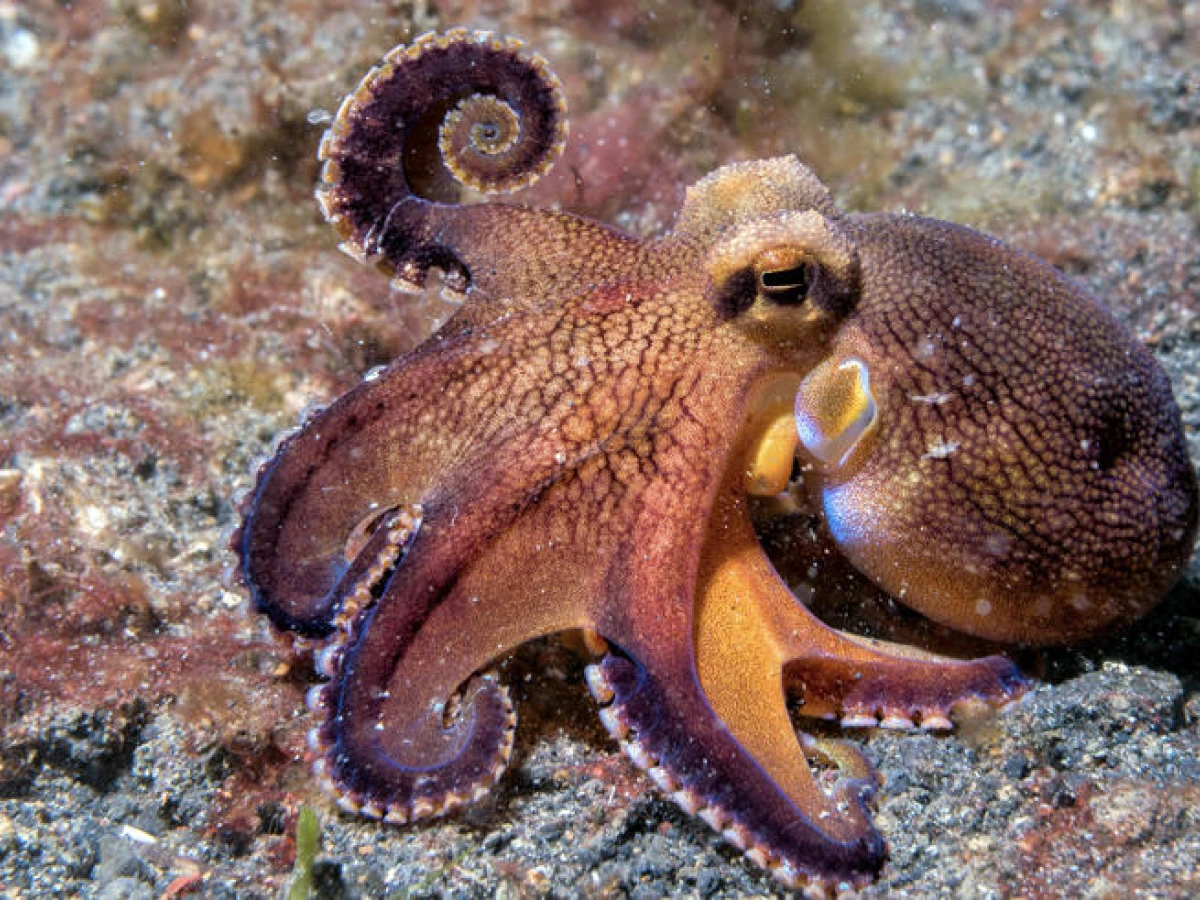
Celebrating World Octopus Day with surprising fact
Scientists are still finding neurological responses and even evolutionary tricks in the octopus’ brain that make it stand out from other invertebrates.
By
Azuhaar Abdul Azeez
Octopuses are intelligent and curious creatures. They have the ability to solve problems and use their tentacles to wield tools, even open jars! Octopuses are also very good at camouflage, changing their colour and texture to blend in with their surroundings.
World Octopus day is celebrated on the 8th of October every year. The day was created in 2010 by biologist James B. Wood to raise awareness about these unique creatures and about the threats that octopuses face, such as overfishing, pollution, and climate change. Reportedly, it is The Octopus News Magazine Online (TONMO), an online community of cephalopod experts, hobbyists and enthusiasts that is behind establishing a day for the aquatic animal.
The word ‘octopus’ derives from the Greek word for 'eight-footed'. They belong to the scientific genre of cephalopods (meaning ‘head-footed). Cephalopods are a group of molluscs that include the octopuses, squid and cuttlefish. Octopuses are probably the most intelligent of all invertebrates. They have great defence systems that make them undesirable targets, and their predators (sharks and eels, mostly) are able to more easily eat other animals than catch this evasive creature.
Octopus brains share common similarity with human brains
The human genome contains a high number of genes we call transposons or jumping genes. These genes can duplicate themselves, and even move around the human genome. Scientists have now discovered similar jumping genes in a similar part of the octopus’ brain.
“I literally jumped on the chair when, under the microscope, I saw a very strong signal of activity of this element in the vertical lobe”, biologist Giovanna Ponte shared in a press release. Ponte says that the vertical lobe is the structure of the brain that acts as the seat of learning and cognitive abilities in octopuses. Additionally, it’s very similar to the hippocampus that we see in the human brain.
Ponte works with the Stazione Zoologica Anton Dohrn research institute in Italy. She said that the genes could be the reason octopuses are so intelligent. Finding these jumping genes in an octopus’ brain could help mankind better understand their intelligence.
Scientists continue to research octopus. As a result, they’re still finding neurological responses and even evolutionary tricks in the octopus’ brain that make it stand out from other invertebrates. Based on these findings, the octopus’ brain is structured more akin to that of a mammal than an invertebrate, which helps make these creatures even more intriguing for scientists.
The researchers published a paper with their findings in BMC Biology back in May of 2022. Not only was finding the jumping genes intriguing, but the researchers say it could change human understanding of the genes entirely. Previously, most only thought of them as copy-and-paste genes, able to cut and paste molecular copies wherever needed.
Now that scientists have discovered them in the octopus’ brain, they may find evidence that the gene’s usage moves beyond simply copying molecular data and moving it around. What that evidence is, or even what the gene’s other purpose is, though, remains unclear.
Celebrate beloved creatures by helping in conservation
Octopuses are found in all oceans of the world and come in a variety of colours and sizes. The giant Pacific octopus is the largest, longest-living species of its kind and it can weigh up to 600 pounds! The smallest species is the dwarf octopus and it only grows to be about two inches long.
A favourite delicacy in Maldivian cuisine, the most common type of ‘Boava’ known to this sea nation is the common octopus, known as Octopus Vulgaris in science. ‘Kulhi boava’ is a Maldivian delicacy made of octopus arms braised in curry leaves, chilli, garlic, cloves, onion, pepper, and some oil.
The major threat to this species is unregulated fishing. It is taken by hand-jig, in pots, trammel nets and traps. Some people even break corals forcefully with iron poles, killing the corals where the octopus’ hide by using strong chemicals such as bleach to get the creature out of its hiding hole.
Due to the asocial behaviour of all octopuses, they are spread throughout a vast region of the ocean. Due to this, very little is known about octopus populations, so it is hard to determine if they are being threatened or are going extinct. However, in general, octopuses are not threatened in the Maldives, and do not need any sort of protection from animal conservation committees. They are, however, unable to live in polluted waters, which only increase in dirtiness as time goes on.
The general fisheries regulation of Maldives bans the following activities during fishing:
-
Use of dynamite or any other explosive for fishing or killing of fishes
-
Use of any kind of gun for fishing or killing of fishes.
-
Use of any kind of poison for fishing or killing of fishes
While locals use guns and poisonous chemicals to catch octopuses, most of these cases go unreported, and catching baby octopuses by the hundred is not in any way illegal. On this occasion, it is important that people are made aware of responsible fishing so that octopuses can roam our oceans without the threat of ever going extinct.




